“Are you going to leave? But I still haven’t been able to do anything for you.”
This was the heart-breaking line by mother Hana to her son Ame in the 2012 anime film Wolf Children, directed by Hosoda Mamoru. The line is more heart-wrenching when you realize that we have seen how a young college student-turned mother battles her greatest life challenge: being a mother while doing it all alone and battling the society around her and the unique hardships her children face. All that in addition to what is perhaps the biggest challenge she encountered – watching her children Yuki and Ame grow and choose their own paths in life.
Twelve years since the film was released with animation by Studio Chizu–Wolf Children is an anime film has neem likened to some of the classics such as Spirited Away, Paprika, Silent Voice, and Graveyard of Fireflies, among others. But beyond the emotional storytelling this film has, it is worth to discuss as to why this film will be–and will always be–the greatest anime film dedicated to motherhood.
A Mother’s Duty Will Always Be Evolving
One of the great things about Wolf Children is that not only did it show a mother’s innate compassion for her children, but it also explained how her role will always evolve in every situation given.
The film follows the story of a young college student named Hana, who falls in love with a man that usually attended her college class despite not being enrolled. Curious about the man’s behavior, she decides to help him with his studies. Not long after, the man admits his true nature to Hana, as he has the ability to transform into a wolf. Hana accepts him for who he is, and they move in together. She soon gives birth to their two children, Ame and Yuki.
After those events, we are introduced to a sequence that marks the beginning of Hana’s motherhood. As mundane as the scenes look, the film’s soundtrack makes the scenes more intimate, as if someone’s life flashes right into our eyes. The music, composed by Takagi Masakatsu, captures well these small moments with utter delicacy and progression of Hana’s motherhood journey.
Following an unfortunate outdoor hunt that killed Hana’s husband, she is then left alone to raise the kids by herself. And this is where some of those ‘supermom’ tropes come in: from single-handedly catching a drawer falling over, to doing laundry while asleep: basically a depiction of Hana’s new motherhood stage: how to raise her kids without a father and without her husband by her side.
Wolf Children captures glimpses of what hardships Hana goes through during this time. These rapid-cut scenes are somewhat a symbol of the ever-evolving role of a mother: always faced with new duties. always on the lookout and always thinking about the children. It also perfectly captures the changes in Hana’s life – from a city-girl student to a single mother, she perfectly adapts not just because she has to, but because this is her calling, and no matter how difficult things are she will not give up.
Understanding Maternal Conflict
In addition to the evolution of Hana as a mother, Wolf Children also displayed a great use of various types of conflict to portray nearly all potential hardships a mother may face.
We’ve seen all kinds of internal struggles Hana faces, but there is also an added layer of external struggles that come her way. One of them is raising two lively children in a small apartment. In the small space they had, she had to deal with noise complaints from neighbors to social welfare workers trying to check in with the children. A note of humor was also present: Yuki accidentally eats silica get and Hana ponders where to take her: to a children’s clinic or a veterinarian, as her daughter is not fully human.
Of course, having a child that is not fully human doesn’t happen in real life, but Wolf Children offers us an overview of how external conflict often plagues mothers, and that’s the reality of it. Mothers in real life have to deal with so many things, on top of their responsibilities and protecting their children. This especially resonates to single mothers, much like Hana in the movie. For many mothers out there, motherhood feels like their former life has ended. But amid that constraint, motherhood offers a much more blissful journey, seeing their kids grow with them.
Mothers Evolve, Through High and Low
The greatest evolution of Hana as a mother was when she moved into the countryside in a bid to protect her children from the wider world that will not accept them fully. There, she adopted a lot of skills, from carpentry, and gardening, to getting a job as an assistant for a nature conservation organization. She proves she is completely ready to let go of her city life, just because it will be better for her children.
At this point, some viewers would point out that Wolf Children romanticizes the struggles of motherhood. Some would say that the film itself is a tone-deaf interpretation of what mothers go through. Others would say that the film glorifies the struggles of mothers. But in defense of the film, it does not glorify the struggle itself but is rather an honest depiction of what mothers go through, and what they learn from these hardships. In Hana’s case, she sacrificed everything for love and her family. She as not afraid to do this, even though it didn’t always turn out perfectly. After all, Wolf Children was not just all about the low points of motherhood or the warm side of it – it was realistically balanced.
There was this particular scene in the movie that I’d like to talk about. Hana runs alongside her wolf-children through a snowy forest. As they tumble across a snowy hill, they all howl in unison. At that moment as the orchestral soundtrack plays, it somewhat invites the viewer to temporarily forget all worries and enjoy even the most mundane things life had to offer. It is a truly beautiful ode to this family as well.
In the last few minutes of the film, we see perhaps the greatest test Hana had to take as a mother: letting her child decide the life they want moving forward. As Hana shouted about not being able to give everything to Ame, the child-turned-wolf runs off to the hills and therefore chooses her own path in life. At that point, with tears in Hana’s eyes, she cheers Ame on to live a better life, still feeling like she could have somehow done more.
As bitter as this scene goes, this is the harsh reality mothers, and parents in general, face. They give birth to their children, raise them, feed them, and then let them decide who they want to be. Wolf Children gives audiences a proper closure when it comes to Hana’s children and also her journey.
As for Hana? Well, Yuki says in her narration that she still lives in the same old countryside house quietly. Talk about closing the film with at least a smile on the face that after all of those hardships, Hana had managed to raise the kids well and she was loving enough to accept them for who they are.
Countless anime films and series have long portrayed caring mothers. But for now, Hana of Wolf Children is the greatest embodiment of motherhood in anime film history, and through her journey and hardships as a single mother, viewers have learned a thing or two about the innate strength mothers tend to possess.
There is no shortage of great mother depictions in anime in general, especially in recent years – Sachiko Fujinuma from the 2016 series Erased is a good example. However, what makes Hana’s depiction more realistic than others is how she is shown as a good mother, but not as a picture-perfect one. While most works with similar themes would try to go with the route of the ideal mother, either through actions or appearances, in Wolf Children we get to see Hana learn how to be a mother step by step. It is not a talent she was born with but it is a path she chose, and that is what makes her very relatable.
During an interview with Famitsu, director Mamoru Hosoda said that the film’s theme was about endurance among parents. He noted that there will always be a stark difference between raising children in the city and on the countryside, as well as different issues parents will have to deal with. And that sentiment is also quite visible in Wolf Children, through Hana’s somewhat unique family journey.
Most mothers in real life aren’t perfect; after all, we are all only human. But choosing to have children is a lifetime responsibility, filled with sacrifices and hardships. And Wolf Children does a beautiful job of portraying the emotional aspect of not only motherhood but also growing up.
Images via Official English Website
©2012 “WOLF CHILDREN” FILM PARTNERS.
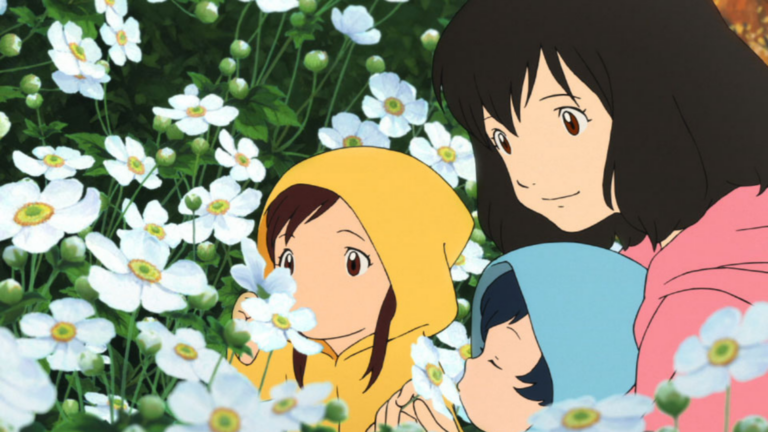
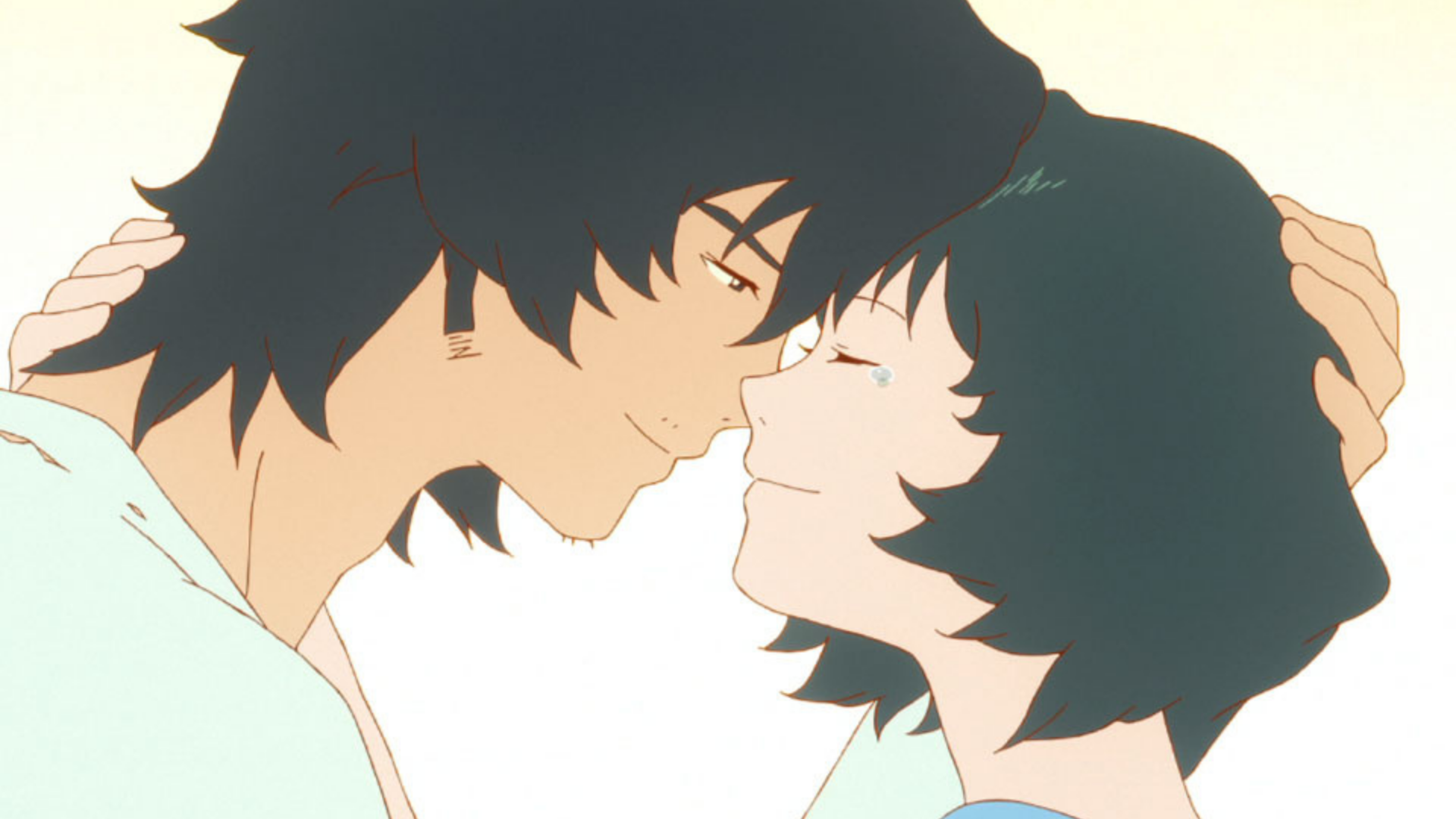
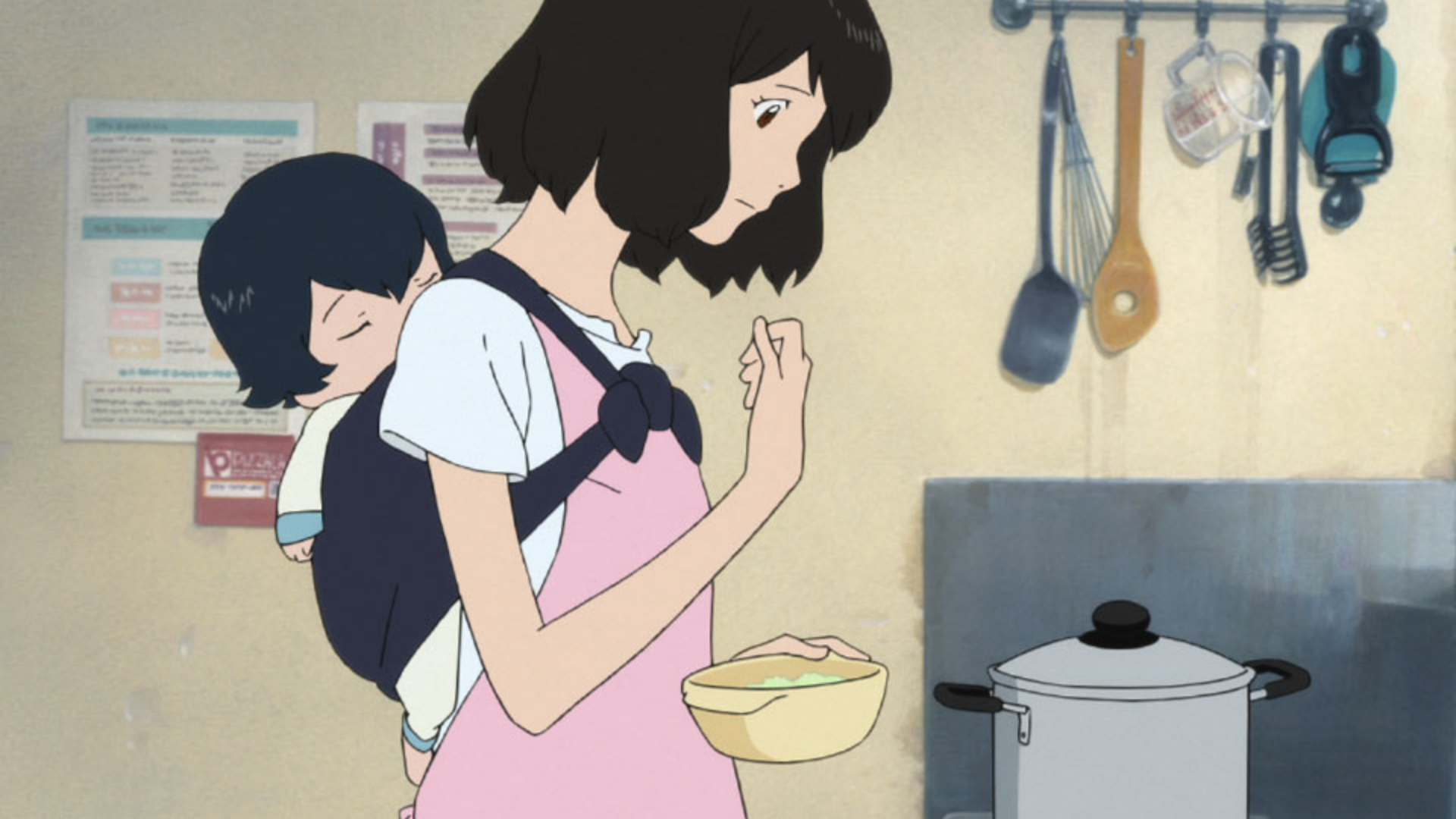
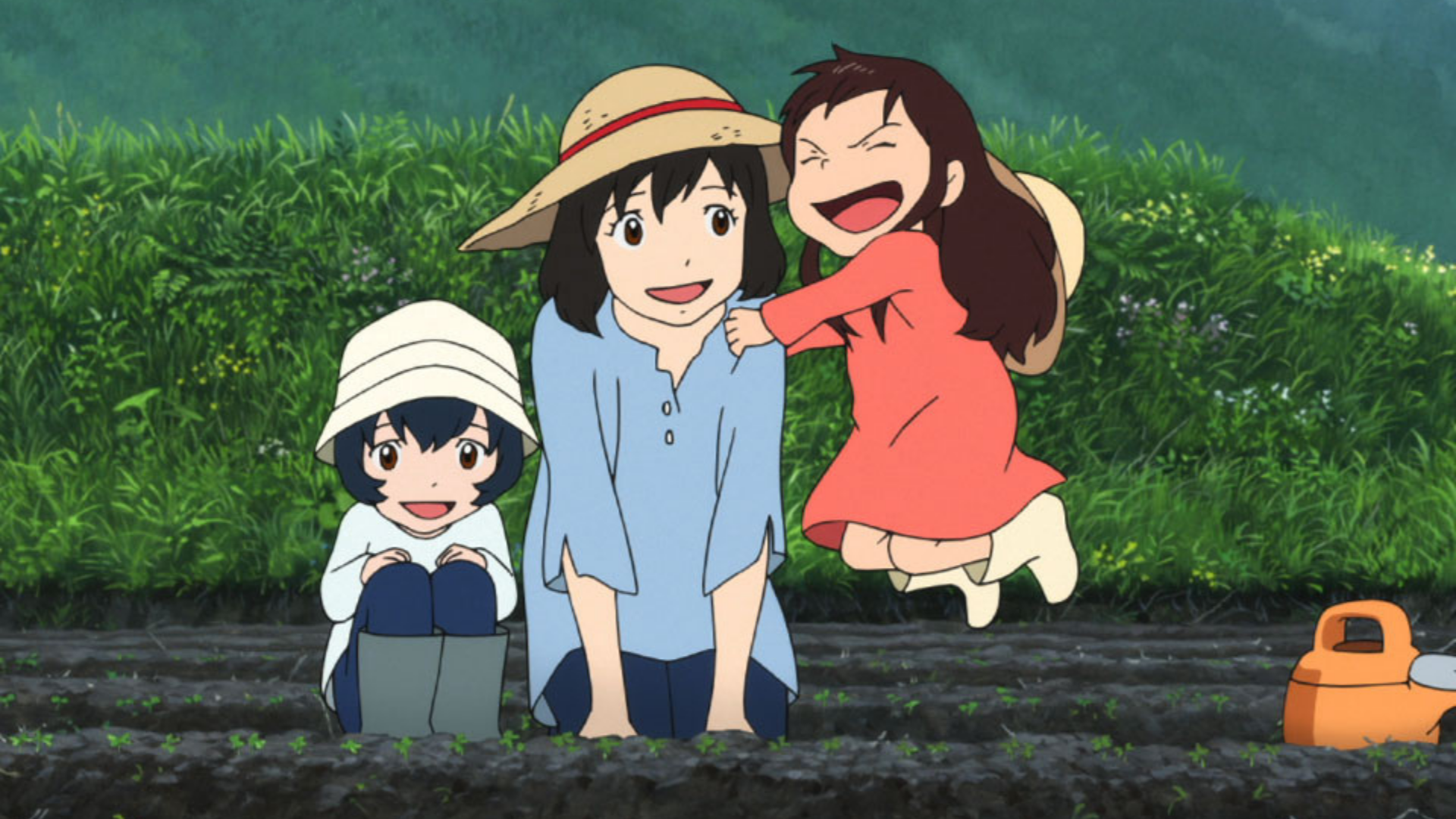
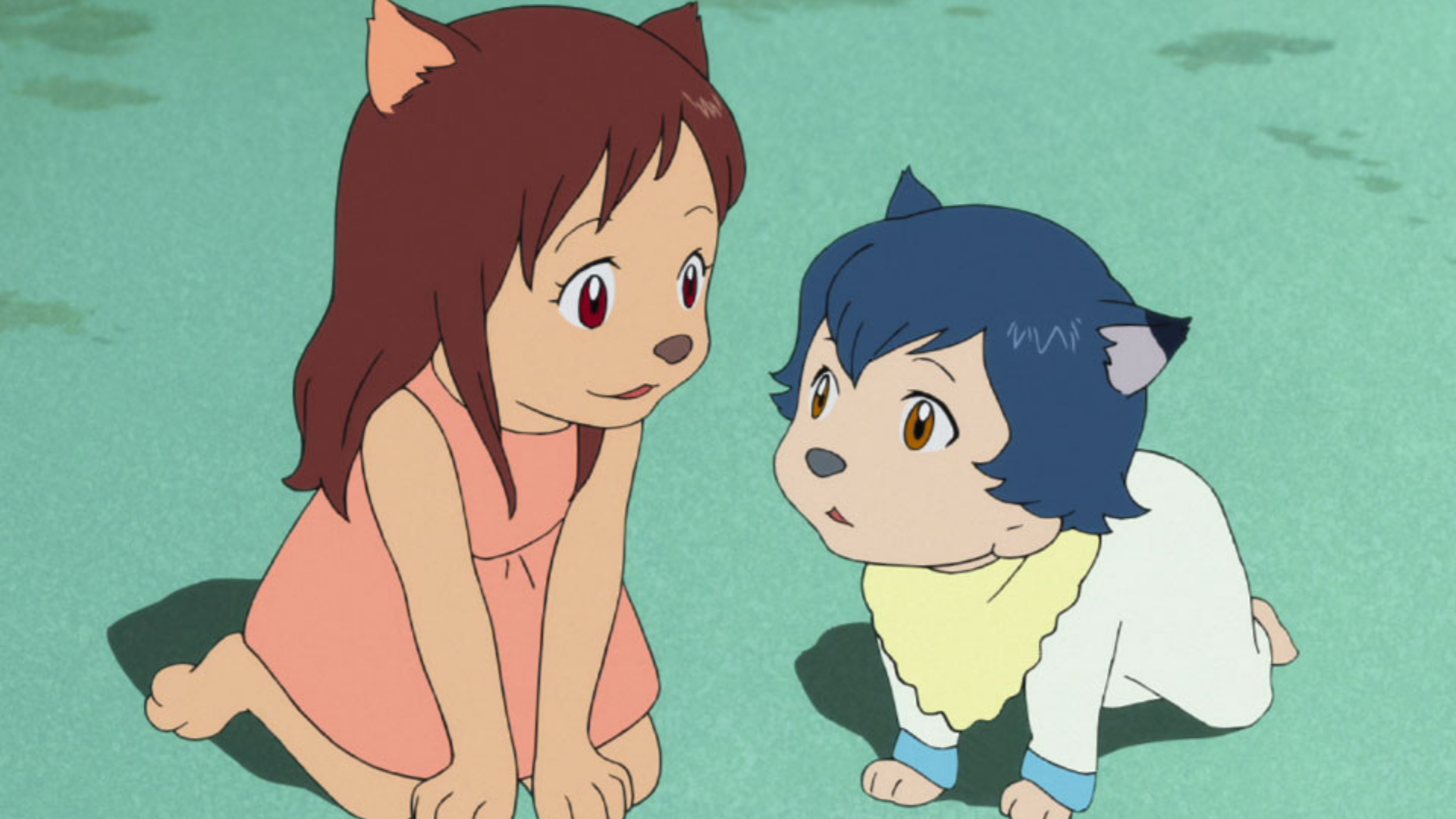
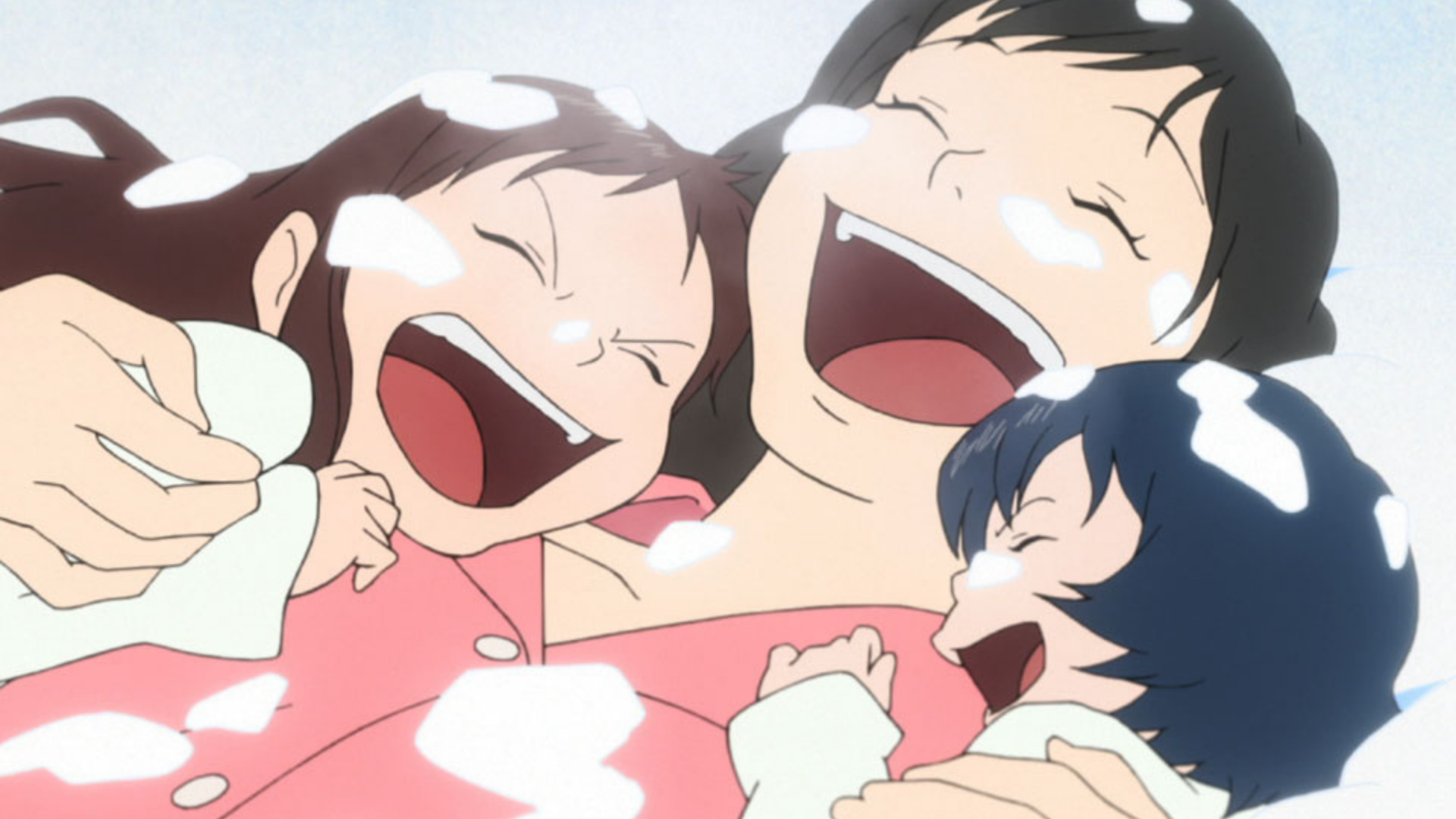
Participate In Discussions